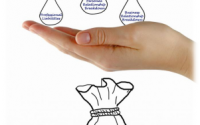How Domestic Violence Can Affect Children Psychologically
“Children are the world’s most valuable resource and its best hope for the future.” John F. Kennedy
While the actual number of children suffering abuse in the U.K. cannot be estimated, it’s possible that 58,000 children need protection from violence, research shows.
Research shows that 9 percent of adults in the U.K. have confessed to suffering from abuse during their childhood and 7 percent admitted to being victims of domestic violence.
Domestic abuse takes various forms and children who suffer from a troubled childhood often end up suffering from psychological impacts that damage them emotionally. Some children may grow up to become criminals or depressed.
Domestic abuse can take the form of SEEING, HEARING, and OBSERVING.
Seeing refers to frequently witnesses fights and arguments between parents that may later take a violent turn. Hearing means listening to fights and arguments that take a violent turn. Observing means being forced to deal with violent behaviour at home.
According to a report by NSPCC, children to witness domestic violence tend to develop behavioural issues and problems, such as:
- Aggressive behaviour
- Depression or anxiety
- Difficulty learning
- Difficulty socialising
 Protecting Your Child from Abuse
Protecting Your Child from Abuse
One of the first things to remember is that domestic abuse is not your fault. The actions of an individual are not the direct results of your behaviour or actions. Most individuals blame themselves for the situation.
This can also have a negative impact on your child. Seeing you blame yourself can transfer the same outlook to your children. So when they deal with violence outside of home, they will start blaming themselves.
The first thing you need to do is gather all your belongings and important documents. Make sure you have all of these with you:
- Your identity (ID card, passport and driver’s license)
- Social security cards/numbers (All family members)
- Birth certificates (Your children’s, as well as yours)
- Records for schools/vaccinations
- Medicine (if prescribed)
- Medical records (Your children and yourself)
- A copy of divorce/custody papers
- Work permits and green card
- Cheque books/credit and debit cards
- House and car keys
- A copy of the lease/rental agreement
The next step to take is finding a shelter or place to escape to. Do this discreetly so that the perpetrator cannot find you. See if you can stay with a trusted family member or friend. Make sure to tell everyone in your network so that they know not to tell them about your location.
It’s also important to inform your children’s school not to let your kids go home with anyone except you.
Teach your kids code words for help. It can be any word. Whenever they are abused, they should be able to alert you or trusted adults about the problem using special words.
It’s also imperative to take legal action as soon as possible. Wembley Solicitors offers legal aid to victims of domestic abuse. Feel free to visit our website for further information regarding protection laws in the U.K, or call us at 020 3417 3700. You can send an email to info@wembleysolicitors.com for questions/queries as well.



